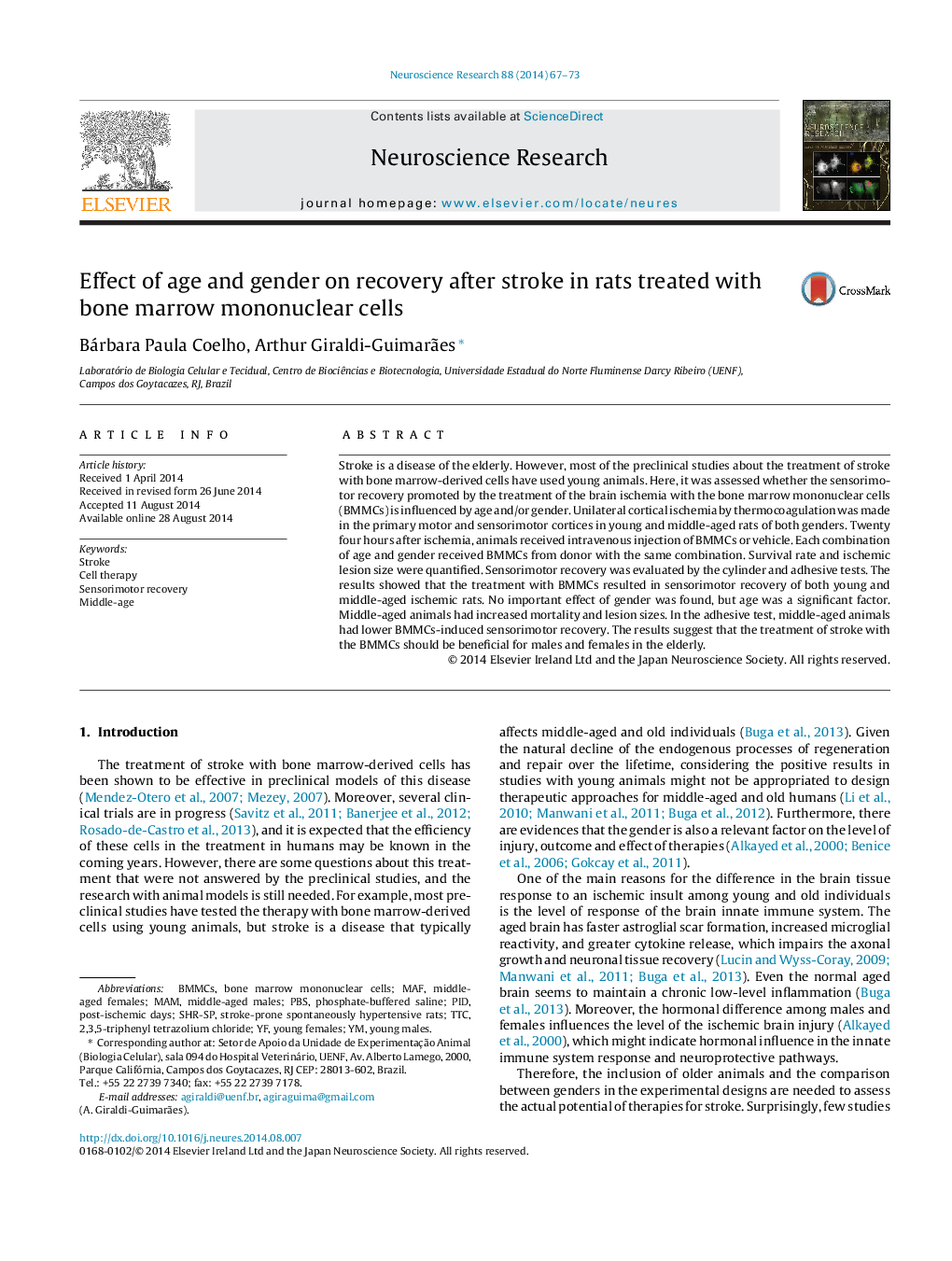| Article ID | Journal | Published Year | Pages | File Type |
|---|---|---|---|---|
| 4351416 | Neuroscience Research | 2014 | 7 Pages |
•BMMCs promotes sensorimotor recovery after brain ischemia.•The impact of age and/or gender was evaluated.•No important effect of gender was found.•Age was a significant factor.•Treatment of stroke with BMMCs can be beneficial for elderly males and females.
Stroke is a disease of the elderly. However, most of the preclinical studies about the treatment of stroke with bone marrow-derived cells have used young animals. Here, it was assessed whether the sensorimotor recovery promoted by the treatment of the brain ischemia with the bone marrow mononuclear cells (BMMCs) is influenced by age and/or gender. Unilateral cortical ischemia by thermocoagulation was made in the primary motor and sensorimotor cortices in young and middle-aged rats of both genders. Twenty four hours after ischemia, animals received intravenous injection of BMMCs or vehicle. Each combination of age and gender received BMMCs from donor with the same combination. Survival rate and ischemic lesion size were quantified. Sensorimotor recovery was evaluated by the cylinder and adhesive tests. The results showed that the treatment with BMMCs resulted in sensorimotor recovery of both young and middle-aged ischemic rats. No important effect of gender was found, but age was a significant factor. Middle-aged animals had increased mortality and lesion sizes. In the adhesive test, middle-aged animals had lower BMMCs-induced sensorimotor recovery. The results suggest that the treatment of stroke with the BMMCs should be beneficial for males and females in the elderly.
